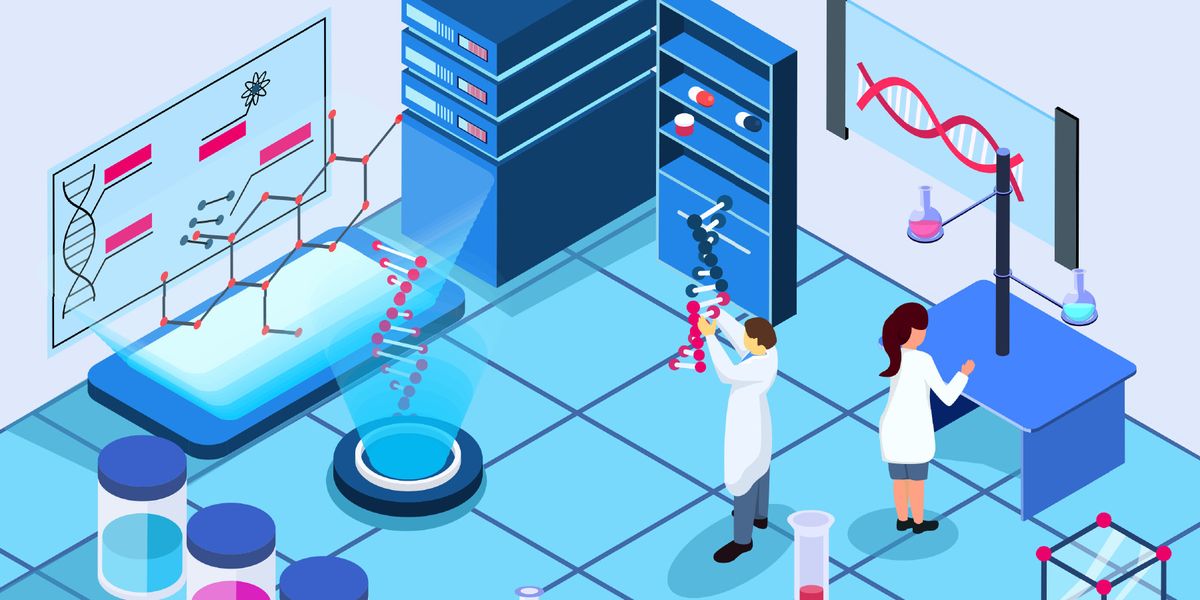In the realm of modern science, the advent of the genomics era has brought about revolutionary changes, reshaping our understanding of life itself. From the intricate double helix structure of DNA to the vast expanse of genomic data, this article delves into the journey from the fundamentals of genomics to its transformative implications.
Introduction to the Genomics Era
Genomics, the study of an organism’s entire genetic makeup, has emerged as a cornerstone of biological research. It encompasses the analysis of DNA sequences, gene expressions, and their intricate interplay within living organisms. The profound significance of genomics lies in its ability to unravel the mysteries encoded within our DNA and pave the way for groundbreaking discoveries.
The Role of DNA in Genomics
At the heart of genomics lies the remarkable molecule known as DNA (deoxyribonucleic acid). DNA, with its elegant double helix structure, serves as the blueprint for life, containing the genetic instructions necessary for the development, functioning, and evolution of all living organisms. Understanding the nuances of DNA structure and function is pivotal in deciphering the complexities of genomics.
Techniques in Genomic Analysis
Advancements in technology have propelled genomic analysis to unprecedented heights. Next-Generation Sequencing (NGS), Polymerase Chain Reaction (PCR), and Microarray Analysis are among the cutting-edge techniques driving genomic research forward. These methodologies enable scientists to unravel the intricacies of the genome with unparalleled accuracy and efficiency.
Data Generation and Management
The exponential growth of genomic data presents both opportunities and challenges. The sheer volume of data generated from genomic studies necessitates robust strategies for data management and analysis. From storing vast datasets to ensuring data integrity and security, effective management is paramount in harnessing the full potential of genomic information.
Bioinformatics and Computational Tools
Bioinformatics, the marriage of biology and computer science, plays a pivotal role in genomic data analysis. Utilizing computational algorithms and statistical models, bioinformaticians extract meaningful insights from genomic datasets, unraveling complex biological phenomena and driving scientific discoveries.
Genomic Medicine: Transforming Healthcare

The integration of genomics into medical practice heralds a new era of personalized medicine. By leveraging genomic information, healthcare providers can tailor treatment strategies to individual patients, optimizing efficacy and minimizing adverse effects. From cancer therapy to rare genetic disorders, genomics holds the promise of revolutionizing healthcare delivery.
Ethical Considerations in Genomic Research
While genomics offers unprecedented opportunities, it also raises ethical concerns regarding privacy, consent, and genetic discrimination. Safeguarding genomic data and ensuring equitable access to genetic information are paramount to addressing these ethical challenges and fostering trust within the scientific community and society at large.
Future Directions in Genomics
As technology continues to advance, the future of genomics appears increasingly promising. From breakthroughs in genome editing technologies to the emergence of precision medicine, the potential applications of genomics are vast and far-reaching. As we navigate the complexities of the genomics era, we must remain vigilant in addressing ethical, social, and regulatory considerations to maximize the benefits of genomic research.
Unlocking the Potential of Genomic Data
As the field of genomics continues to evolve, the volume and complexity of genomic data grow exponentially. With each passing day, vast amounts of genomic information are generated, providing researchers with unprecedented insights into the genetic basis of health and disease. However, the sheer magnitude of genomic data presents significant challenges in terms of storage, analysis, and interpretation.
In order to fully harness the potential of genomic data, researchers rely on sophisticated computational tools and bioinformatics algorithms. These tools enable scientists to sift through massive datasets, identify meaningful patterns, and extract valuable insights into the genetic underpinnings of various traits and diseases.
From Bench to Bedside: The Promise of Genomic Medicine
One of the most transformative applications of genomics lies in the realm of personalized medicine. By analyzing an individual’s genetic makeup, healthcare providers can tailor treatment strategies to their unique genetic profile, maximizing efficacy and minimizing adverse effects. From cancer therapy to rare genetic disorders, genomic medicine holds the promise of revolutionizing healthcare delivery and improving patient outcomes.
Moreover, genomics has the potential to revolutionize disease diagnosis and risk assessment. Through genome-wide association studies (GWAS) and other genomic approaches, researchers can identify genetic markers associated with various diseases, paving the way for more accurate and personalized diagnostic tests.
Navigating Ethical and Social Implications

While genomics offers tremendous promise, it also raises important ethical and social considerations. The collection, storage, and analysis of genomic data raise concerns about privacy, consent, and data security. Additionally, the potential for genetic discrimination based on an individual’s genetic information underscores the need for robust ethical guidelines and regulatory frameworks to safeguard against misuse and abuse of genomic data.
Furthermore, disparities in access to genomic technologies and healthcare services highlight the importance of addressing equity issues in genomic research and healthcare delivery. Efforts to promote inclusivity, diversity, and accessibility in genomics are essential to ensure that the benefits of genomic research are shared equitably across all segments of society.
Embracing the Future of Genomics
As we stand on the cusp of a new era in genomic science, the possibilities are endless. From unraveling the mysteries of the human genome to harnessing its potential for personalized medicine and beyond, genomics holds the key to unlocking a wealth of knowledge that has the power to transform our understanding of life itself.
By embracing the principles of collaboration, innovation, and inclusivity, we can harness the full potential of genomics to address some of the most pressing challenges facing humanity, from combating infectious diseases to tackling chronic illnesses and beyond. As we navigate the complexities of the genomics era, let us do so with a spirit of curiosity, integrity, and a commitment to advancing the greater good.
Conclusion
The genomics era represents a paradigm shift in our understanding of genetics and its implications for human health and beyond. From unraveling the mysteries of the genome to harnessing its potential for personalized medicine, genomics holds the key to unlocking a myriad of possibilities. As we embark on this transformative journey, it is imperative that we navigate the complexities of genomic research with integrity, responsibility, and a commitment to advancing the greater good.



